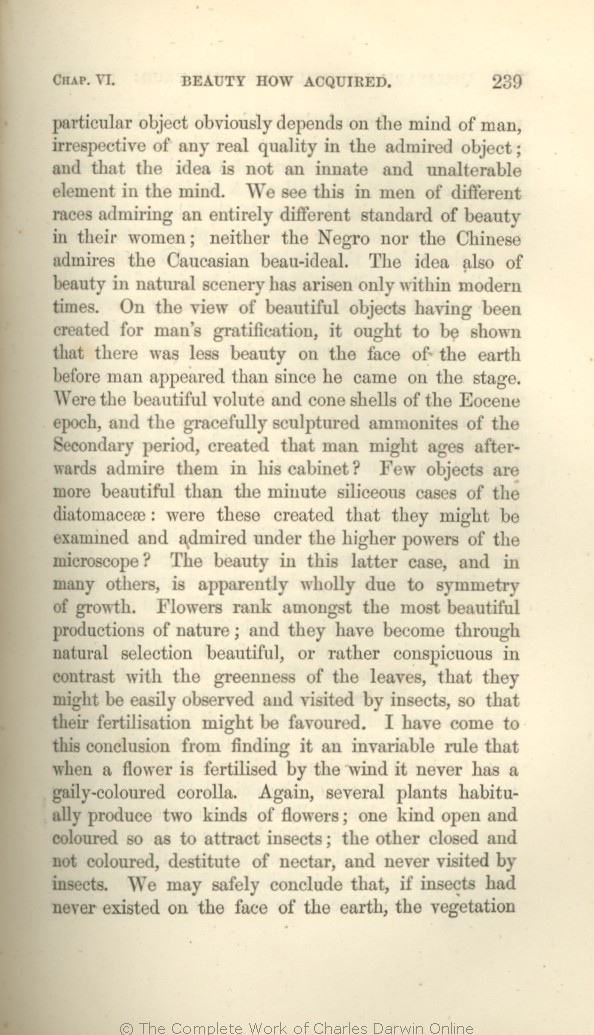obviously depends on the
mind | mind 1866 1869 | | nature 1872 |
| man, 1866 1869 | | the mind, 1872 |
| is not an innate and unalterable element in the mind. 1866 1869 |
| of what is beautiful, is not innate or unalterable. 1872 |
| in 1866 1869 |
| for instance, in the 1872 |
| women; 1866 1869 | | women. 1872 |
| neither 1866 1869 | neither 1872 |
| Negro 1866 1869 | Negro 1872 |
| Chinese 1866 1869 | Chinese 1872 |
| admires 1866 1869 | admires 1872 |
| Caucasian 1866 1869 | Caucasian 1872 |
| beau-ideal. 1866 1869 | beau-ideal. 1872 |
| 1 blocks not present in 1859 1860 1861 1866 1869; present in 1872 | | If beautiful objects had been created solely for man's gratification, it ought to be shown that before man appeared, there was less beauty on the face of the earth than since he came on the stage.
|
| beauty in natural 1866 |
| picturesque beauty in 1869 |
| become through natural selection beautiful, or rather 1866 1869 |
| been rendered 1872 |
| greenness of the leaves, 1866 |
| green leaves, 1869 |
| green leaves, and in consequence at the same time beautiful, so 1872 |
| be easily 1866 1872 | | easily be 1869 |
| and visited 1866 1869 | and visited 1872 |
| insects, 1866 1869 | | insects. 1872 |
| their 1866 1869 | their 1872 |
| fertilisation 1866 1869 | fertilisation 1872 |
| might 1866 1869 | might 1872 |
| favoured. 1866 1869 | favoured. 1872 |
| Again, 1866 1869 | Again, 1872 |
| several 1866 1869 | | Several 1872 |
| closed 1866 1869 | | closed, 1872 |
| We may safely 1866 |
| Hence we may 1869 1872 |
| never existed 1866 1869 |
| not been developed 1872 |
| the vegetation 1866 1869 | | our plants 1872 |
|









